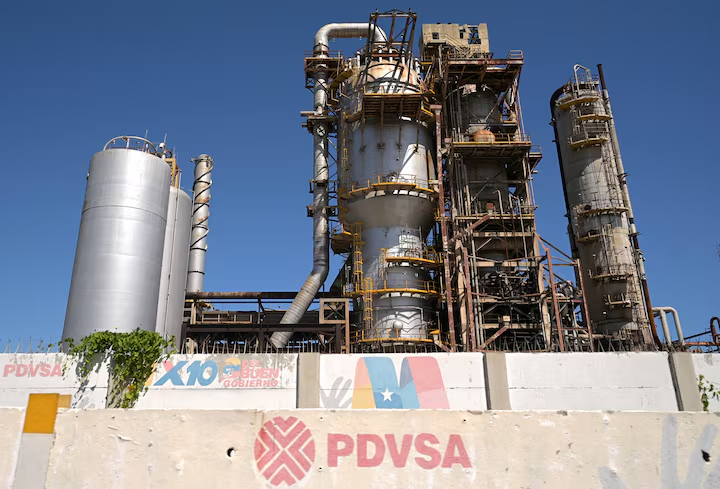International Commercial Arbitration and U.S. Commercial Litigation represent two distinct approaches to resolving disputes arising from commercial transactions that cross national boundaries. International Commercial Arbitration is a consensual, private dispute resolution process in which parties from different jurisdictions agree to submit their disputes to one or more arbitrators. The arbitration process is governed by international treaties, such as the New York Convention on the Recognition and Enforcement of Foreign Arbitral Awards, and is often chosen for its flexibility, confidentiality, and ease of enforcing awards across borders.
In contrast, U.S. Commercial Litigation involves the resolution of disputes within the public judicial system. The process is more formal and subject to the Federal Rules of Civil Procedure as well as state-specific procedures and laws. Litigation in U.S. courts provides parties with a judge or jury decision and includes mechanisms such as discovery, motions, and appeals that can extend the resolution timeline. While litigation offers a more structured environment, it can lack the private nature and tailored approach that arbitration affords.
The differences between these two mechanisms center around control and flexibility in the proceedings, predictability in enforcement, geographical neutrality, and confidentiality. Parties often opt for arbitration to avoid the perceived unpredictability of foreign legal systems, while others might prefer litigation due to its transparent process and the possibility of appeals. The choice between International Commercial Arbitration and U.S. Commercial Litigation depends on various factors including the specifics of the contractual relationship, the nature of the dispute, and the strategic interests of the parties involved.
Foundations of Commercial Dispute Resolution
The foundations of commercial dispute resolution lay in the structures and principles governing how businesses resolve cross-border disputes. This involves comparing the processes and authorities like International Commercial Arbitration and U.S. Courts, which handle such cases through different mechanisms of arbitration and litigation.
Understanding Arbitration and Litigation
International Commercial Arbitration is a procedure wherein disputing parties select arbitrators to render a binding decision, known as an award. It is favored for its confidentiality, flexibility, and international enforceability under treaties such as the New York Convention. Arbitral tribunals, constituted of one or more arbitrators, conduct proceedings with a level of procedural freedom not typically found in national courts.
Alternatively, U.S. Commercial Litigation entails the resolution of disputes within the U.S. judicial system. A judge presides over the proceedings in accordance with rigid procedural rules, and the possibility of an appeal allows for several levels of scrutiny. This process is public, creating a body of precedent that informs future disputes.
- Key Differences:
- Conducting Body: Arbitral Tribunal vs. Judge
- Flexibility: High in Arbitration vs. Low in Litigation
- Enforceability: Cross-border enforcement under international treaties for Arbitration
- Appeal Process: Limited in Arbitration vs. Extensive in Litigation
- Confidentiality: Private in Arbitration vs. Public in Litigation
The Role of Tribunal and U.S. Courts
In International Commercial Arbitration, the role of the arbitral tribunal is to offer a neutral forum for parties to resolve their disputes. They have jurisdiction granted by the parties themselves, which is usually defined in an arbitration agreement. These tribunals apply rules chosen by the parties or provided by arbitration institutions and do not follow the legal procedures of any one nation.
The U.S. Courts, on the other hand, have jurisdiction established by law. They apply federal or state law to determine the outcome of disputes. While they offer a more formal resolution process, they also have the capacity to enforce or vacate arbitration awards under both domestic law and international agreements.
- Authority Basis:
- Arbitral Tribunal: Agreement of parties
- U.S. Courts: Federal or state law
- Role in Enforcement:
- Arbitral Tribunal: Issues binding awards subject to limited review
- U.S. Courts: Enforce or vacate arbitration awards; final judgment in litigation
These foundations are essential in choosing the appropriate forum for resolving commercial disputes on an international scale.
Arbitration vs. Litigation: Process and Procedure
The pathway through which disputes are resolved in International Commercial Arbitration and U.S. Commercial Litigation differ markedly both in structure and in practice, with each system featuring unique procedural steps.
Initiation and Pleadings
In International Commercial Arbitration, the process commences with a Notice of Arbitration, based on an existing Arbitration Agreement. Parties submit their claims and defenses in a concise manner. In contrast, U.S. Commercial Litigation involves more formal pleadings, including the complaint and answer which require detailed factual allegations and legal claims.
Evidence and Discovery
Document Production in arbitration is typically limited and governed by rules like the IBA Rules on the Taking of Evidence in International Arbitration. Discovery in U.S. litigation is more expansive, often entailing interrogatories, depositions, and request for production, potentially resulting in a lengthy pre-trial phase.
Trial and Arbitral Hearing
Trials in U.S. litigation involve a judge or jury, are bound by formal rules of evidence, and can last several days to weeks. Arbitral Hearings are less formal, where arbitrators have flexibility in considering evidence, and the hearings are generally shorter and more focused.
Appeal and Challenge of Decisions
While a Trial court’s decision can be appealed on substantive and procedural grounds, in International Arbitration, the Award is final and binding with limited grounds for Challenge under the New York Convention or applicable arbitration laws. Arbitration Institutions may set rules that further define the arbitral process.
Enforcement of Decisions and Awards
Enforcing decisions and awards is a crucial step in both International Commercial Arbitration and U.S. Commercial Litigation. The ease of enforcement and the scope covered by international treaties can significantly influence the choice between arbitration and litigation.
Domestic vs. International Enforcement
Enforcement of U.S. Court Judgments domestically typically follows a uniform process, with judgments being recognized and enforceable across different states due to the Full Faith and Credit Clause of the U.S. Constitution. However, when it comes to international enforcement, U.S. Court Judgments may face difficulty due to varying national laws and the absence of an overarching international treaty akin to the New York Convention for arbitral awards.
Comparatively, Foreign Arbitral Awards are generally more enforceable internationally. This is largely due to the New York Convention, which mandates its signatory countries to recognize and enforce arbitral awards made in other contracting states. The Convention minimizes the possibility of a substantive review of the award by the courts where enforcement is sought, streamlining the process significantly.
New York Convention and Its Implications
The New York Convention, officially named the Convention on the Recognition and Enforcement of Foreign Arbitral Awards, is a key international treaty that facilitates the recognition and enforcement of Arbitral Awards. It currently has 168 signatory countries as of the knowledge cutoff date, providing a wide-reaching framework that promotes international trade and investment by ensuring that arbitral awards are enforceable in all signatory states.
The Convention lays out specific grounds on which enforcement of a foreign arbitral award may be refused, which are applied narrowly to protect the finality of awards. These include incapacity of the parties, invalidity of the arbitration agreement, lack of proper notice, matters beyond the scope of the arbitration agreement, improper arbitration procedure, non-binding or set aside awards, and issues of public policy.
Foreign parties often prefer arbitration over litigation due to the enforceability of arbitral awards under the New York Convention. The convention significantly reduces the risks of cross-border disputes by providing a predictable and straightforward enforcement mechanism. This fosters a degree of legal certainty that can be difficult to achieve through litigation for international disputes.
Practical Considerations in Dispute Resolution
Selection between international commercial arbitration and U.S. commercial litigation requires understanding their practical implications, with each offering distinct benefits and limitations regarding cost, duration, and confidentiality.
Cost Analysis and Duration
Cost considerations are paramount as they vary significantly between the two forms. International arbitration may offer a more streamlined process, leading to potential cost savings, though complex cases can become expensive due to arbitrator fees and administrative costs. U.S. litigation tends to involve more discovery, which can increase expenses.
- International Arbitration Center: Costs and duration may be reduced due to procedural flexibility.
- U.S. Commercial Litigation: Often entails a longer duration due to extensive procedural requirements.
Settlement rates and opportunities can also influence cost and length, with arbitration potentially offering more private avenues for settlement, reducing the total time and expense.
| Factor | International Arbitration | U.S. Commercial Litigation |
|---|---|---|
| Administrative Costs | Typically higher | Not applicable |
| Attorney Fees | Varies | Varies |
| Duration | Shorter on average | Longer on average |
| Settlement Opportunities | More private | More public |
Confidentiality and Finality
The confidentiality of the proceedings in arbitration is often a decisive factor, as it allows sensitive information to remain private, contrasting with the public nature of U.S. commercial litigation.
- Arbitration Clauses may stipulate confidentiality requirements.
- U.S. Litigation results are usually a matter of public record, potentially affecting business reputations.
The finality of the decision is also significant. Arbitration awards are generally final, with limited grounds for appeal, whereas U.S. court decisions can be appealed, delaying final resolution.
Choosing the Right Forum and Decision-Maker
A Neutral Forum can be critical in international disputes, and arbitration allows parties to select such a venue, along with arbitrators who are experts in the pertinent field. The Procedural Flexibility of arbitration also enables parties to tailor the process to their needs.
In contrast, U.S. litigation occurs in a predetermined legal framework with a judge assigned to the case, which might not offer the same level of specialization or choice for parties involved.
Trends and Statistics
Statistics reveal trends and outcomes, allowing parties to gauge the Efficiency of arbitration versus litigation.
- International arbitration centers report case duration and success rates, indicating Efficiency.
- U.S. litigation statistics provide insight into court congestion and case timelines.
By analyzing trends, parties can make informed decisions regarding the likelihood of a timely and favorable resolution in either forum.








